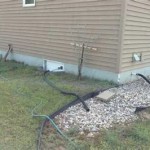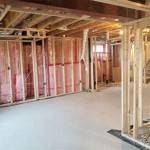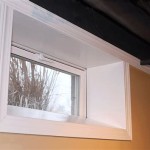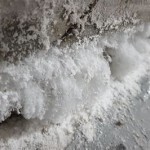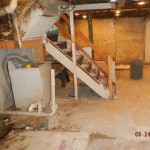Faced or Unfaced Insulation: Essential Considerations for Basement Walls
As a homeowner, ensuring the comfort and energy efficiency of your living space is crucial. Basement insulation plays a vital role in achieving these goals, and choosing between faced and unfaced insulation is a key decision. Here's an in-depth guide to help you understand the essential aspects of each type and make an informed choice for your basement walls.
Faced Insulation
Faced insulation, as the name suggests, comes with a pre-attached vapor barrier. This vapor barrier, typically made of kraft paper or foil, helps prevent moisture from penetrating the insulation and reaching the interior of your basement. It also serves as an effective air barrier, reducing air infiltration and preventing drafts.
Benefits of Faced Insulation:- Ease of Installation: The pre-attached vapor barrier eliminates the need for a separate vapor barrier installation, saving you time and labor costs.
- Enhanced Moisture Protection: The vapor barrier provides additional protection against moisture intrusion, preventing condensation and mold growth.
- Reduced Air Infiltration: The air barrier properties of faced insulation minimize drafts and improve overall energy efficiency.
Unfaced Insulation
Unfaced insulation, on the other hand, does not come with a vapor barrier. It consists solely of insulation material, such as fiberglass, cellulose, or spray foam. While less expensive than faced insulation, it requires the installation of a separate vapor barrier to prevent moisture problems.
Benefits of Unfaced Insulation:- Lower Cost: Unfaced insulation is typically more affordable than faced insulation due to the absence of a pre-attached vapor barrier.
- Flexibility: Unfaced insulation can be cut and shaped to fit irregular areas or around obstacles, making it ideal for complex basement spaces. li>No Risks of Trapped Moisture: If a vapor barrier is not properly installed or sealed, it can trap moisture within the insulation, leading to mold and other issues. Unfaced insulation eliminates this risk.
Choosing the Right Option: Faced vs. Unfaced
The decision between faced and unfaced insulation for basement walls depends on several factors, including:
Climate: In humid climates, faced insulation with a vapor barrier is highly recommended to prevent moisture-related problems.
Basement Usage: If you plan to use your basement as a living space, faced insulation is preferred for enhanced comfort and energy efficiency. For storage areas, unfaced insulation may be sufficient.
Budget: If cost is a major concern, unfaced insulation is a more affordable option. Consider the additional cost of installing a separate vapor barrier.
Complexity of Installation: For complex basement spaces, unfaced insulation may offer better flexibility and ease of installation.
Conclusion
Both faced and unfaced insulation have their own merits. Faced insulation offers convenience, enhanced moisture protection, and reduced air infiltration, while unfaced insulation provides cost savings and flexibility. By considering the factors discussed above, you can make an informed decision that meets your specific needs and budget.
Remember, proper installation is crucial for the effectiveness of any insulation. If you're unsure about installing basement insulation on your own, don't hesitate to consult a qualified insulation contractor.

Unfaced Vs Kraft Faced Insulation What S The Difference Johns Manville

Faced Vs Unfaced Insulation Bob Vila

Unfaced Vs Kraft Faced Insulation What S The Difference Johns Manville

Faced Vs Unfaced Insulation The Constructor

Faced Vs Unfaced Insulation What S The Difference Pickhvac

Finishing A Basement Day 4 Insulation

How To Insulate Basement Walls True Value

Faced Vs Unfaced Insulation Bob Vila

Faced Vs Unfaced Insulation

Faced Vs Unfaced Insulation What S The Difference


